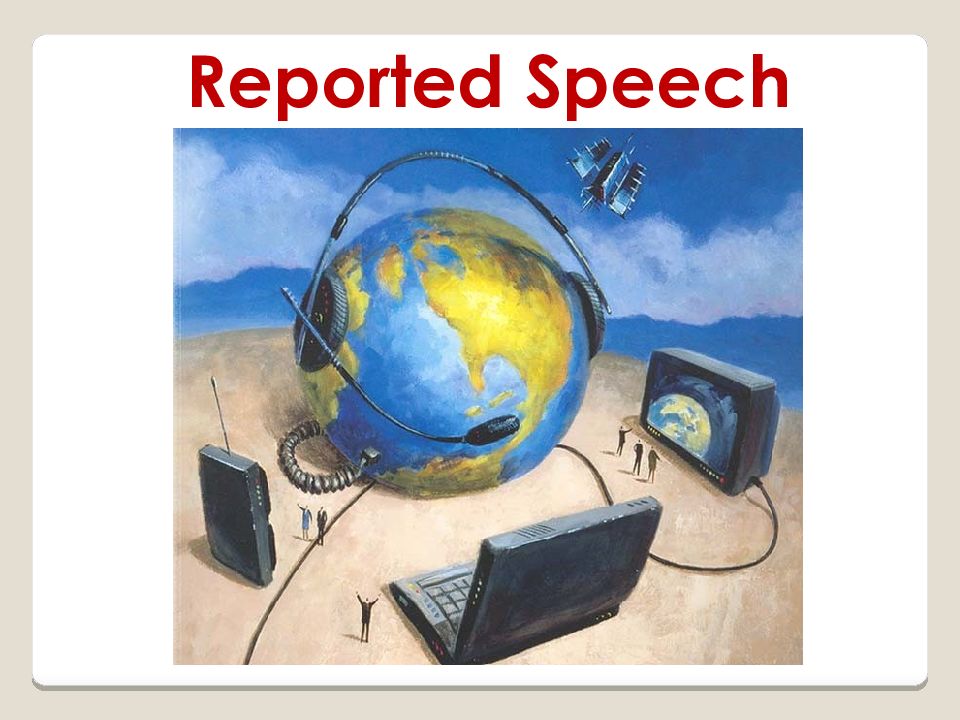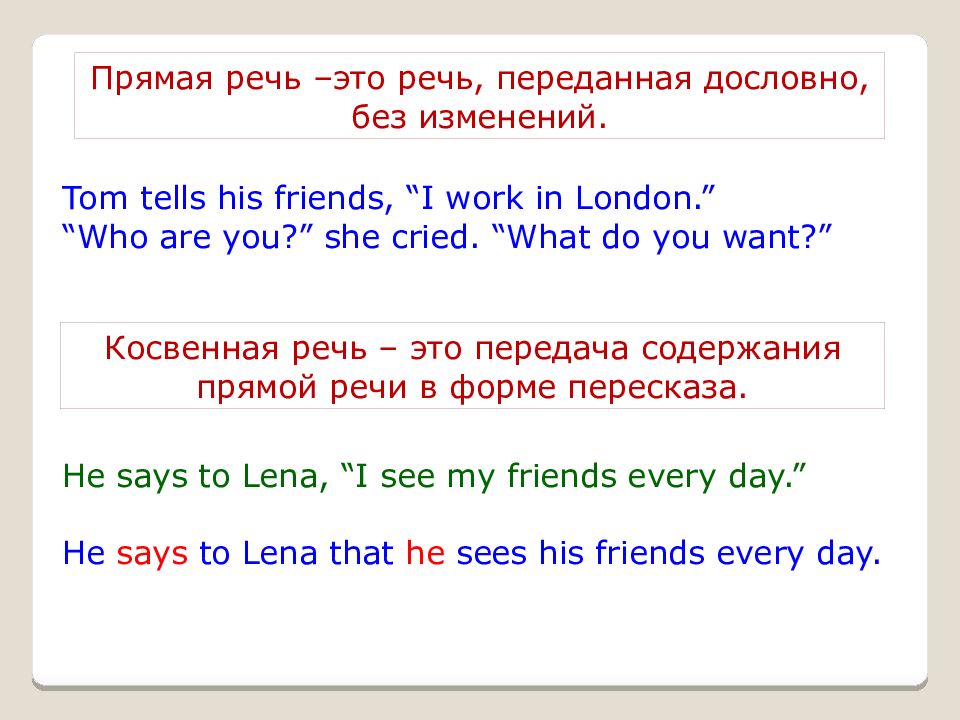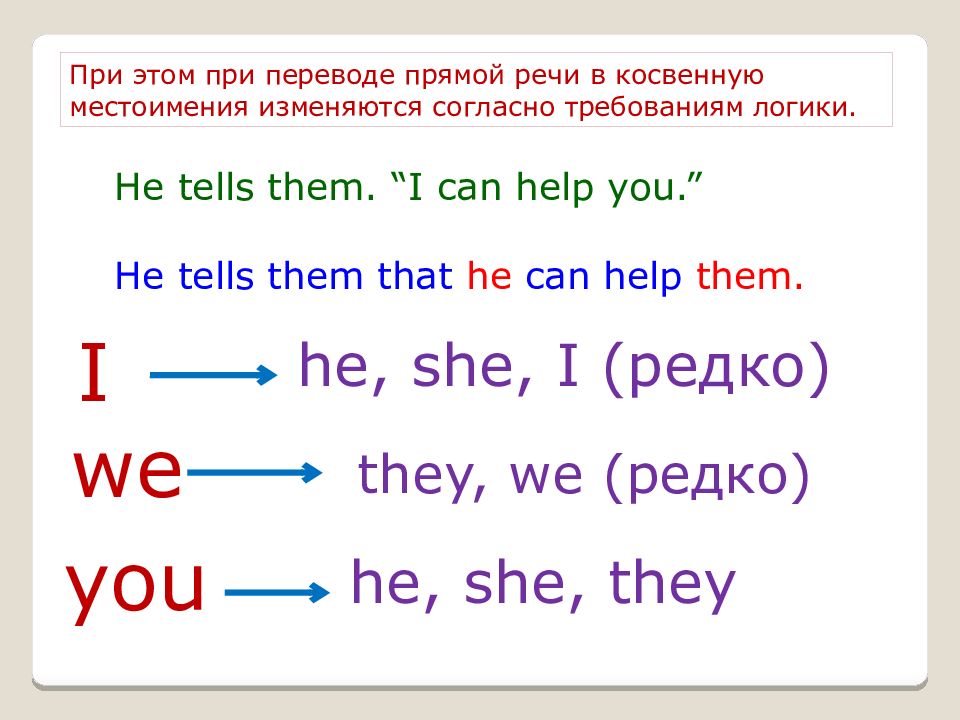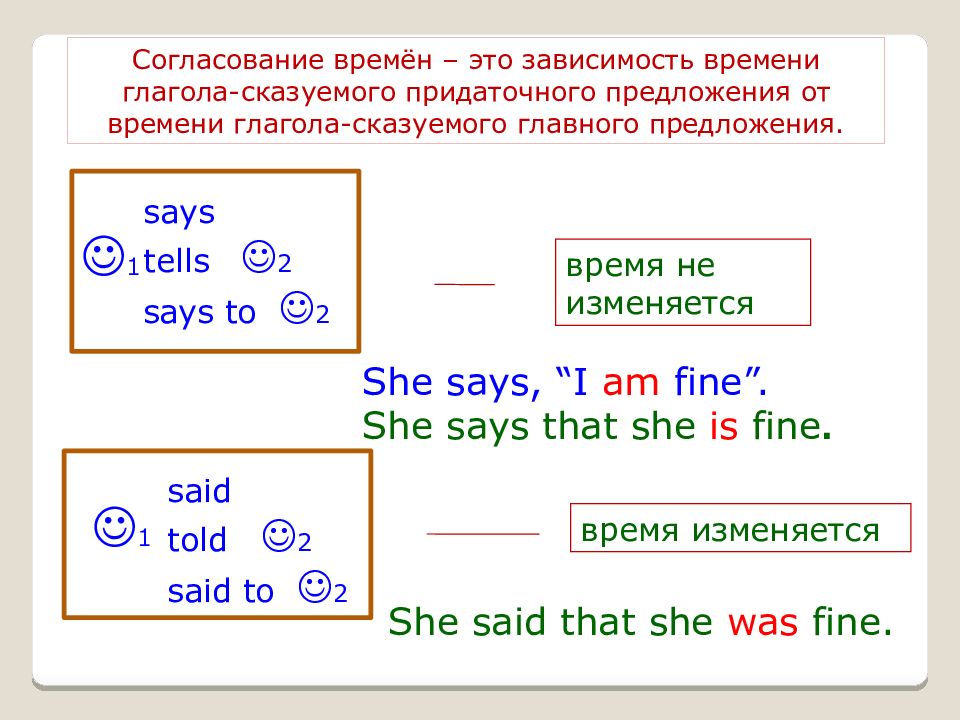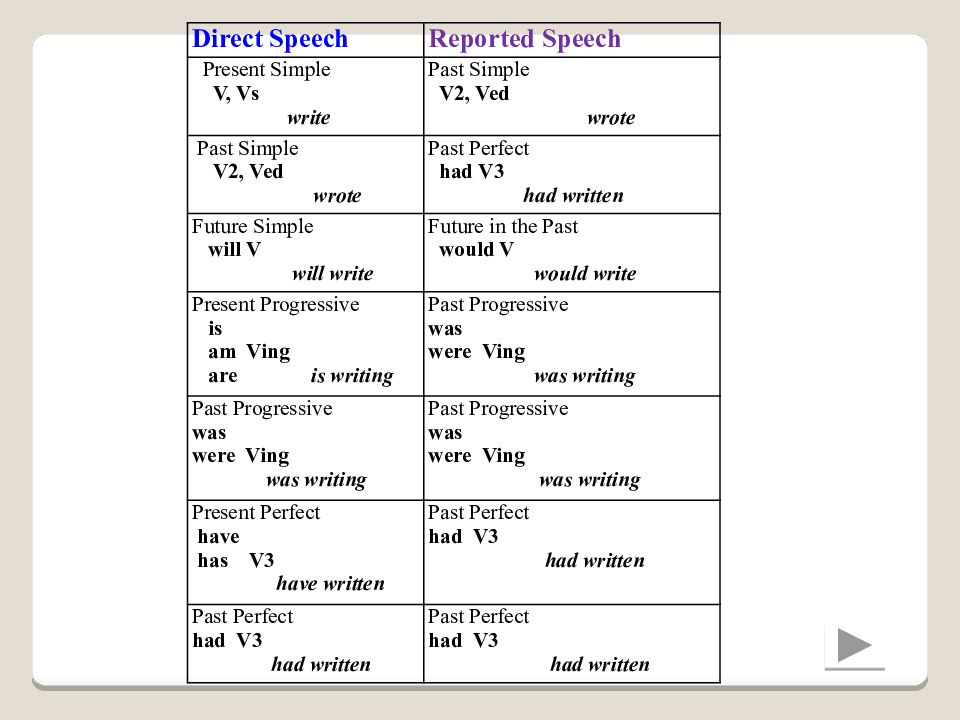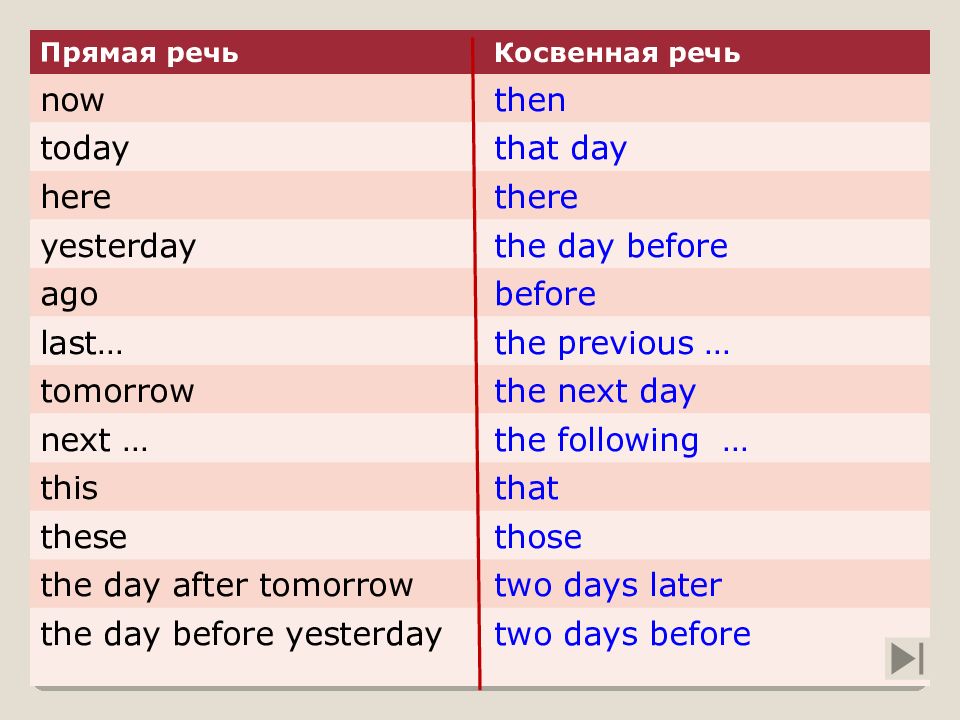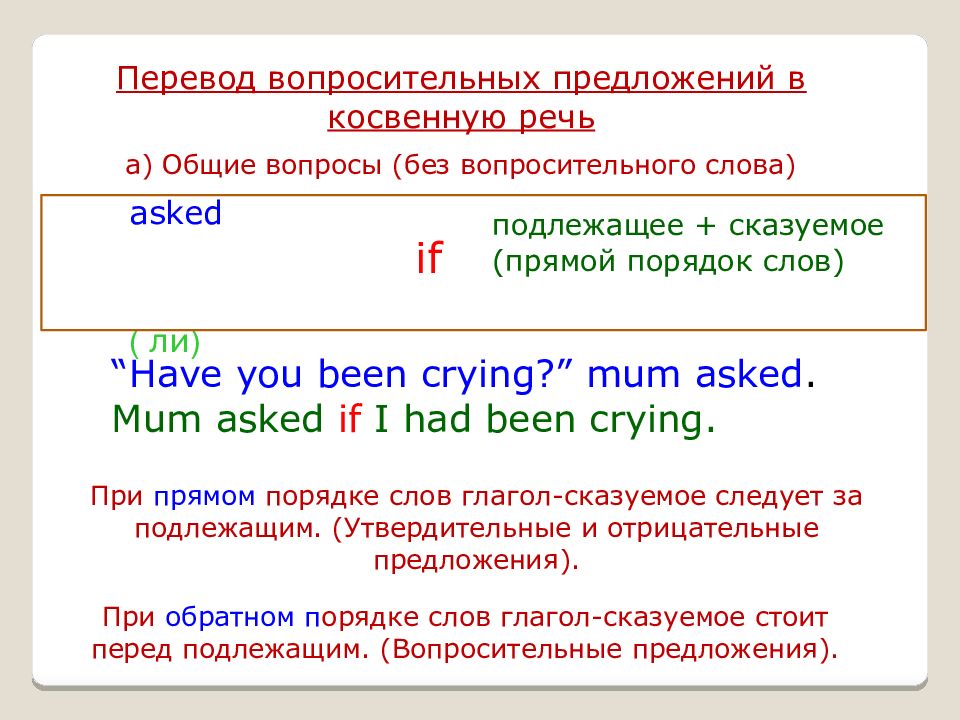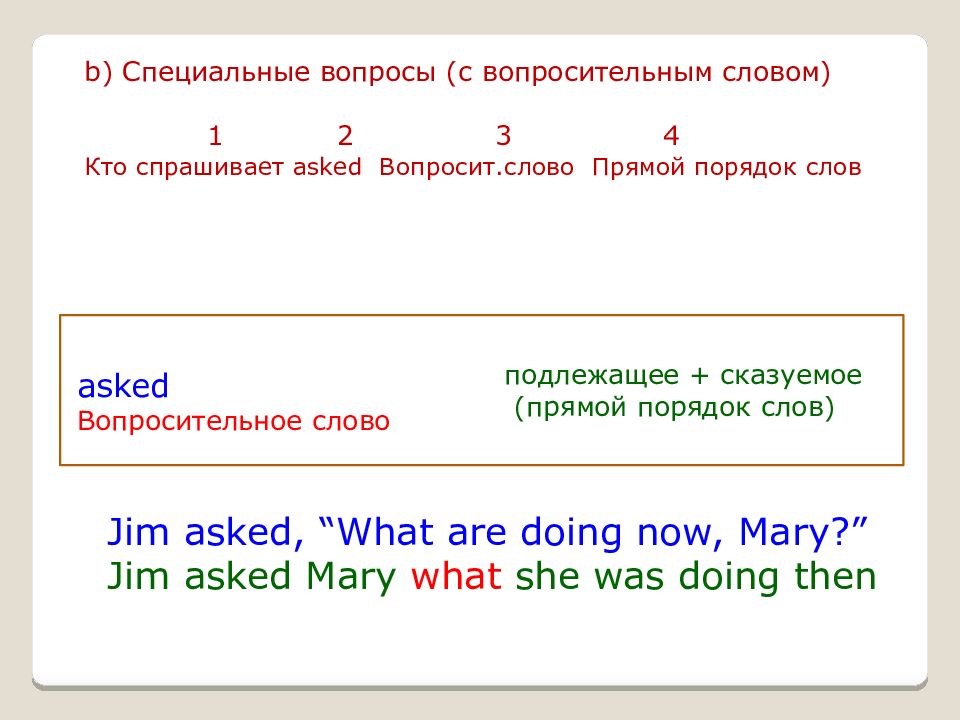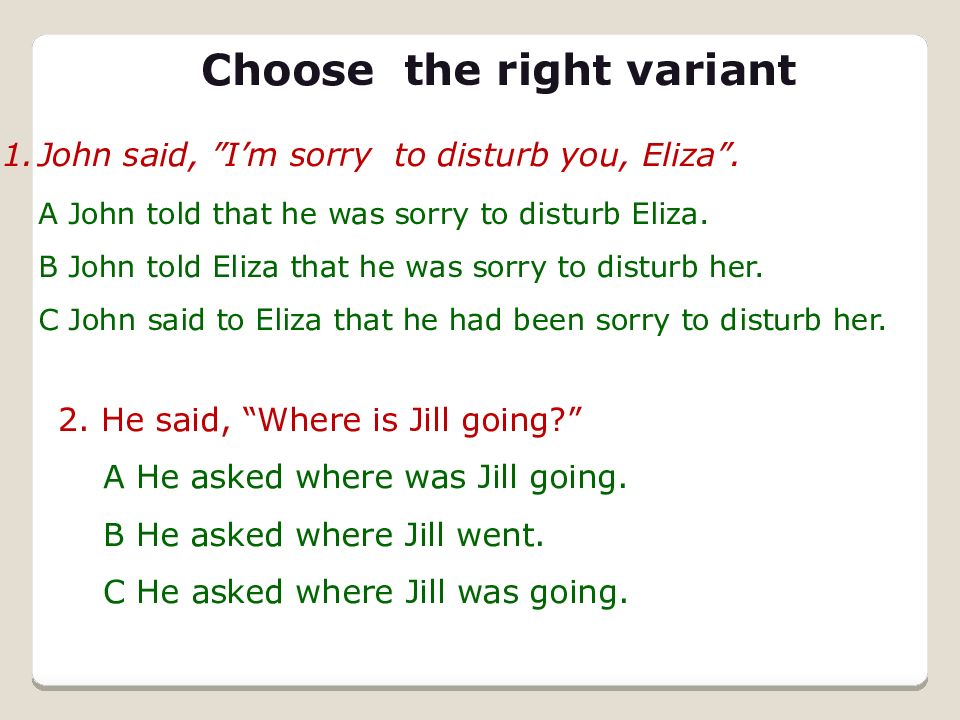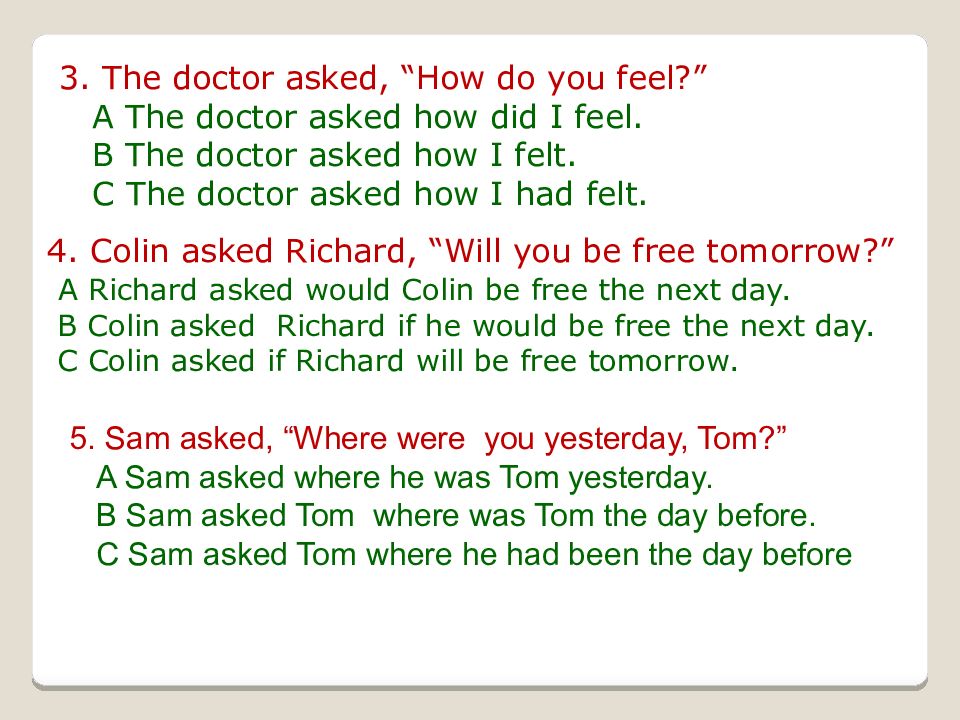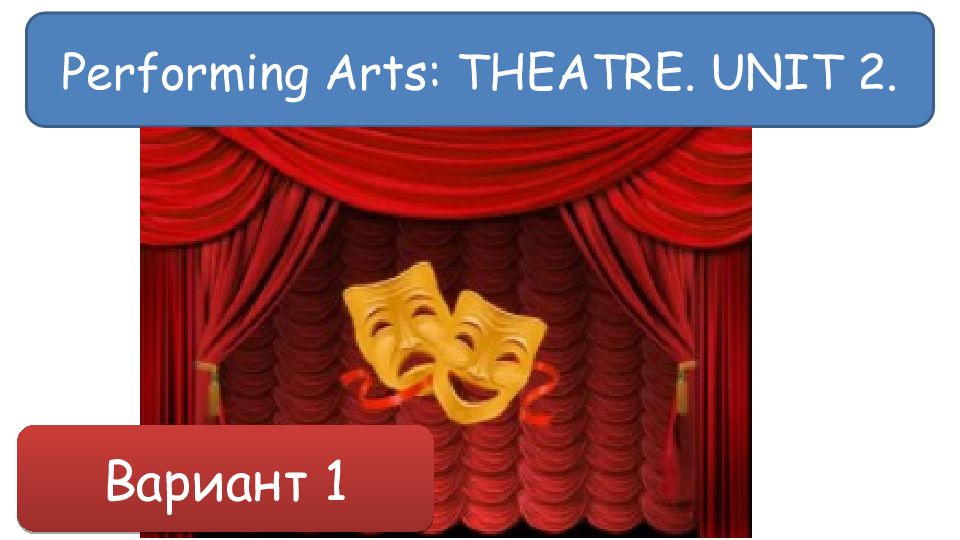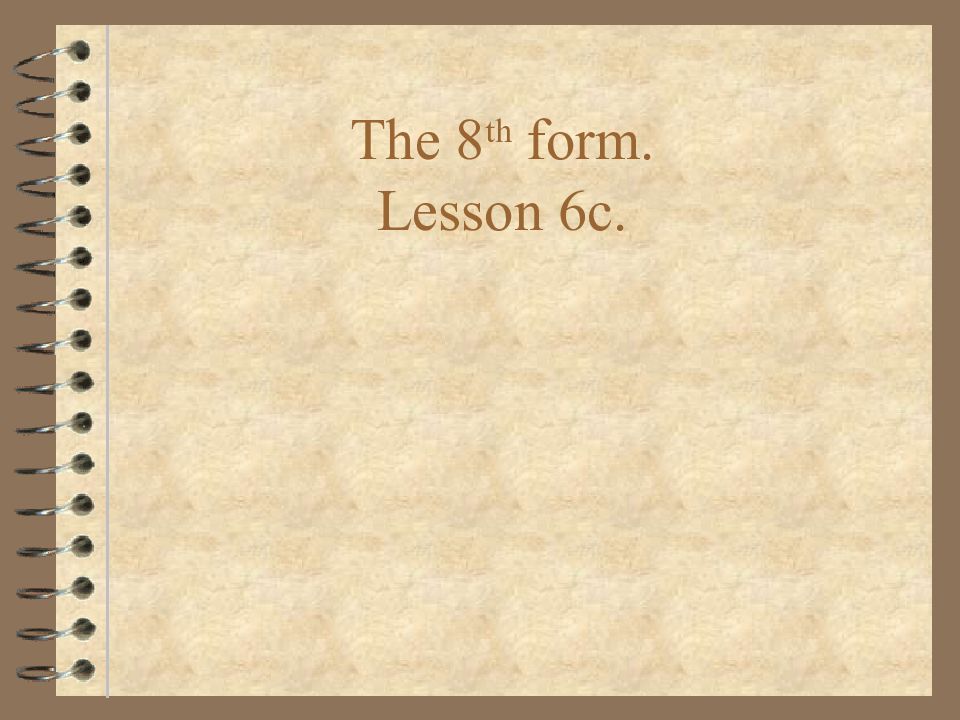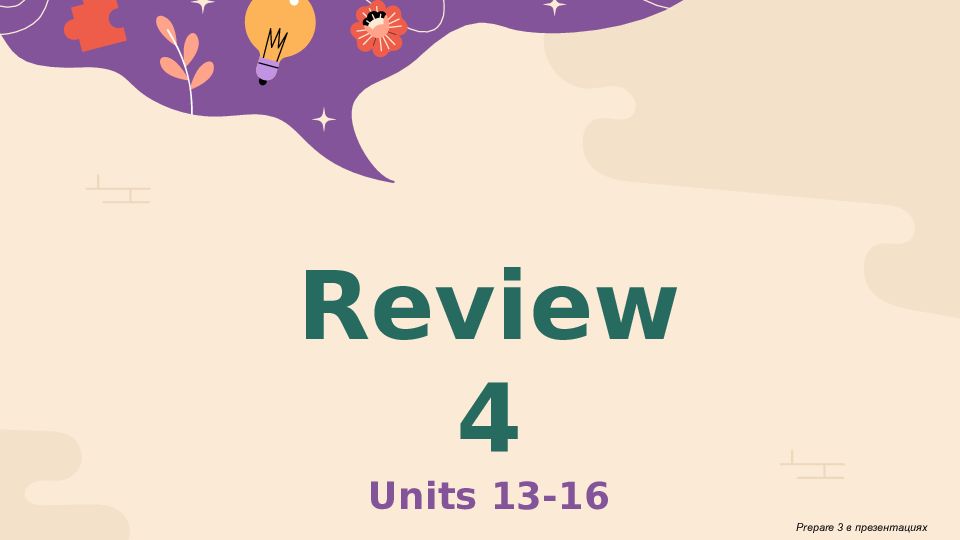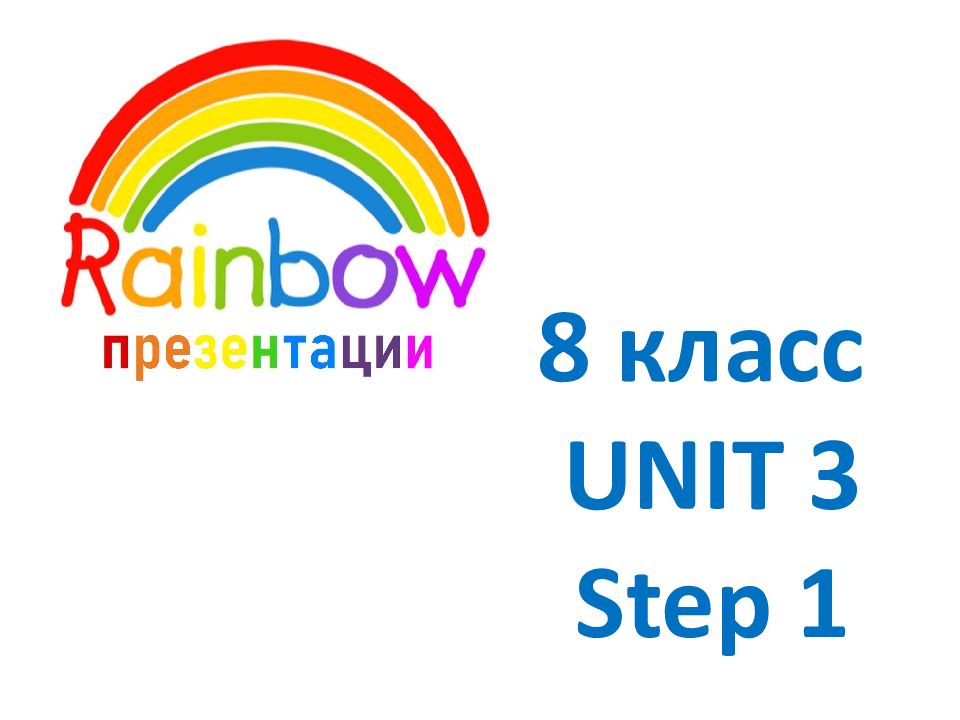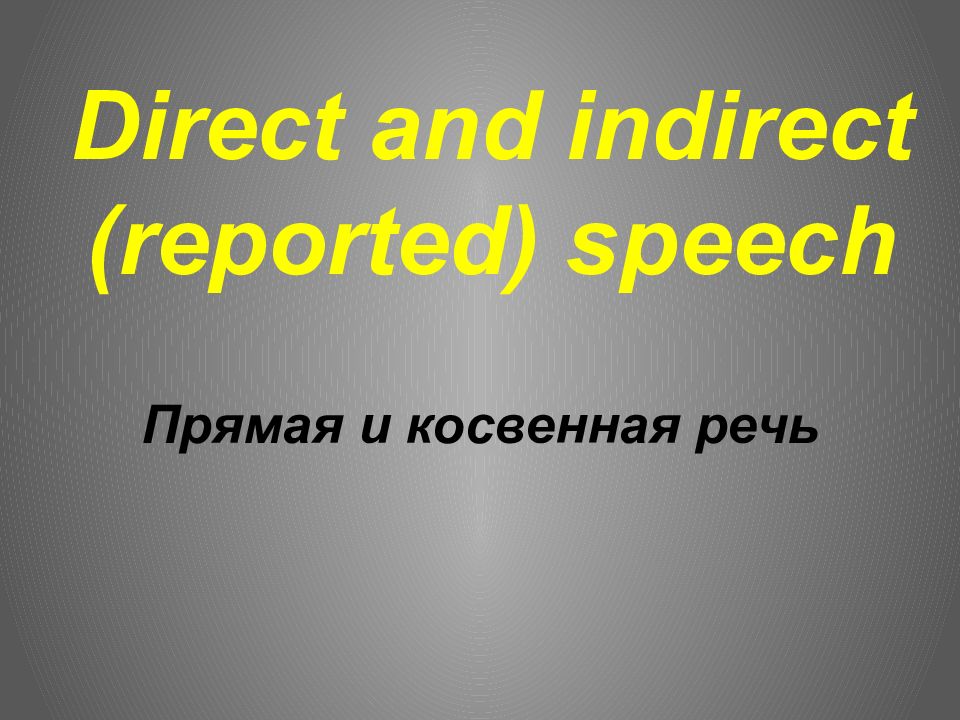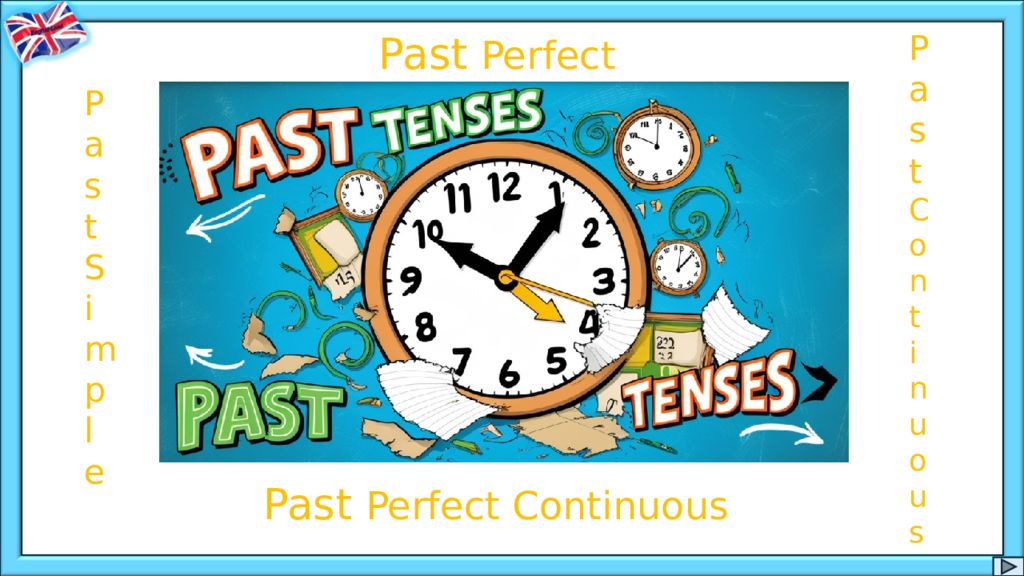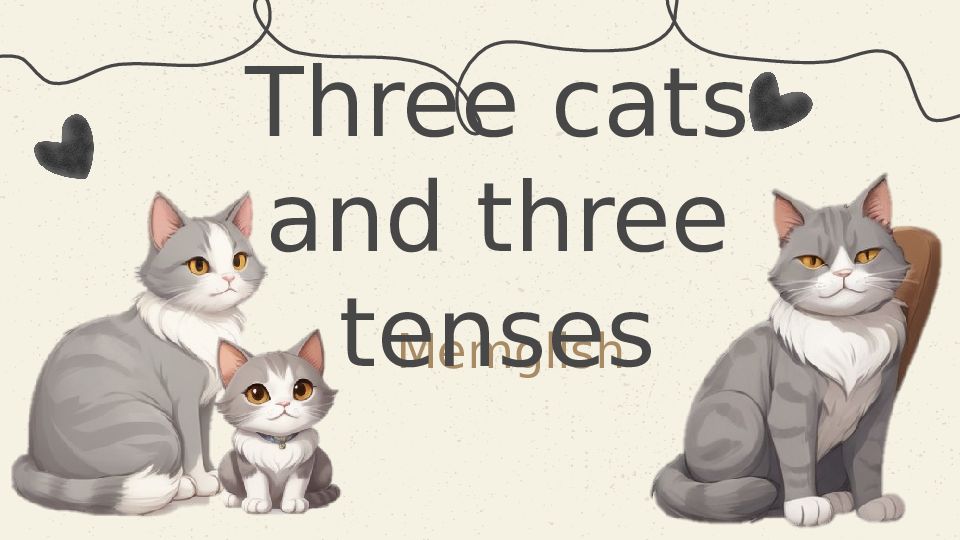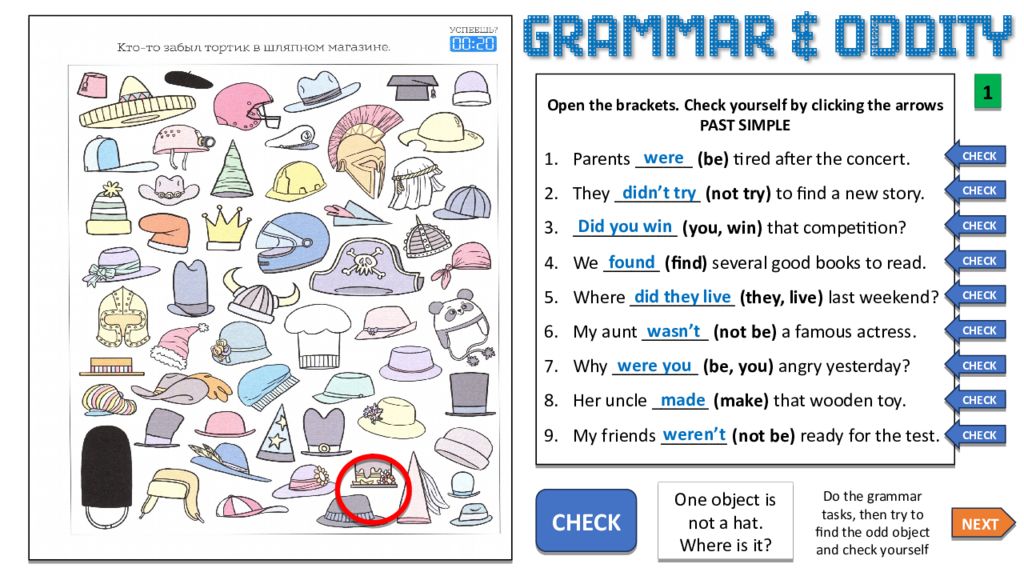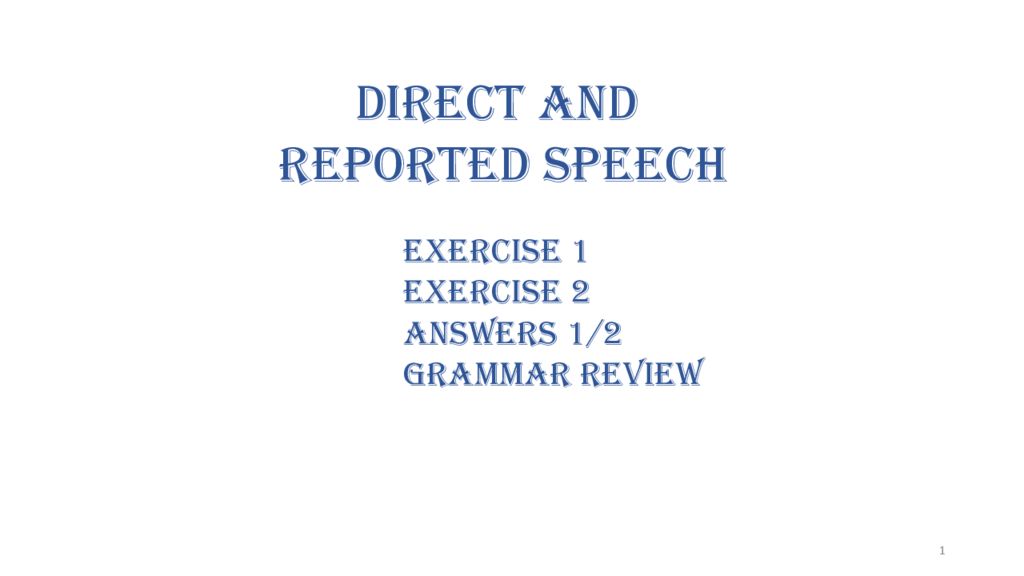Слайд 2
Прямая речь –это речь, переданная дословно, без изменений. Tom tells his friends, “I work in London.” “Who are you?” she cried. “What do you want?” Косвенная речь – это передача содержания прямой речи в форме пересказа. He says to Lena, “I see my friends every day.” He says to Lena that he sees his friends every day.
Слайд 3
I he, she, I (редко) we they, we (редко) you he, she, they При этом при переводе прямой речи в косвенную местоимения изменяются согласно требованиям логики. He tells them. “I can help you.” He tells them that he can help them.
Слайд 4
Согласование времён – это зависимость времени глагола-сказуемого придаточного предложения от времени глагола-сказуемого главного предложения. says tells 2 says to 2 1 время не изменяется She says, “I am fine”. She says that she is fine. 1 said told 2 said to 2 время изменяется She said that she was fine.
Слайд 5
Direct Speech Reported Speech Present Simple V, Vs write Past Simple V2, Ved wrote Past Simple V2, Ved wrote Past Perfect had V3 had written Future Simple will V will write Future in the Past would V would write Present Progressive is am Ving are is writing Past Progressive was were Ving was writing Past Progressive was were Ving was writing Past Progressive was were Ving was writing Present Perfect have has V3 have written Past Perfect had V3 had written Past Perfect had V3 had written Past Perfect had V3 had written
Слайд 6
Прямая речь Косвенная речь now then today that day here there yesterday the day before ago before last… the previous … tomorrow the next day next … the following … this that these those the day after tomorrow two days later the day before yesterday two days before
Слайд 7
Перевод вопросительных предложений в косвенную речь asked if ( ли ) подлежащее + сказуемое (прямой порядок слов) “Have you been crying?” mum asked. Mum asked if I had been crying. При прямом порядке слов глагол-сказуемое следует за подлежащим. (Утвердительные и отрицательные предложения). При обратном п орядке слов глагол-сказуемое стоит перед подлежащим. (Вопросительные предложения). а) Общие вопросы (без вопросительного слова)
Слайд 8
Jim asked, “What are doing now, Mary?” Jim asked Mary what she was doing then b ) Специальные вопросы (с вопросительным словом) 1 2 3 4 Кто спрашивает asked Вопросит.слово Прямой порядок слов а sked Вопросительное слово подлежащее + сказуемое (прямой порядок слов)
Слайд 9
Choose the right variant John said, ”I’m sorry to disturb you, Eliza”. A John told that he was sorry to disturb Eliza. B John told Eliza that he was sorry to disturb her. C John said to Eliza that he had been sorry to disturb her. 2. He said, “Where is Jill going?” A He asked where was Jill going. B He asked where Jill went. С He asked where Jill was going.
Последний слайд презентации: Reported Speech
3. The doctor asked, “How do you feel?” A The doctor asked how did I feel. B The doctor asked how I felt. C The doctor asked how I had felt. 4. Colin asked Richard, “Will you be free tomorrow?” A Richard asked would Colin be free the next day. B Colin asked Richard if he would be free the next day. C Colin asked if Richard will be free tomorrow. 5. Sam asked, “Where were you yesterday, Tom?” A Sam asked where he was Tom yesterday. B Sam asked Tom where was Tom the day before. C Sam asked Tom where he had been the day before
